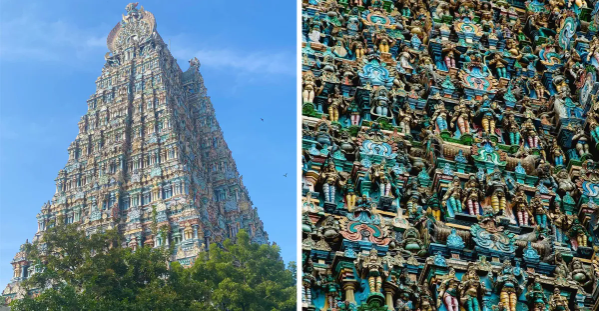Located in India, Meenakshi Amman Temple is one of the oldest and most impressive temples in the country. Going back to more than a millennium ago, the temple is mostly famous for its exterior which consists of mostly blue, tiny sculptures from Hindu mythology.

Meenakshi Amman is home to one of the most important religious festivals for Hindus. Over the course of 10 days, the temple attracts more than a million visitors.

Moreover, the temple is one of 276 temples that ancient Hindu texts mention for their significance. It is dedicated to the deity Meenakshi which the Hindus believe to be a form of Parvati, which is one of the major deities in Hinduism.

One of the most interesting aspects of Meenakshi Amman is that it is right in the city center. With its height that reaches up to nearly 150 meters, it is the most visible icon of Madurai, a city that is famous for its ancient temples.

Although there are no pinpoint dates, the temple’s story may have started as early as the 4th or 5th century CE. The city of Madurai and its temples are mentioned in quite ancient texts. These texts from the 6th century talk about a temple in the center of the city. Despite various destructions and renovations, Indians believe that Meenakshi Amman is the temple in the texts.

A common mistake by most foreigners is the belief that the towers are the temple itself. Actually, Meenakshi Amman is a temple complex. It consists of 14 gopuras, the name of the colorful towers, which serve as gateways to different shrines. The oldest of these gopuras goes back to early 13th century.

As they were built so long ago, the gopuras had different uses for the community. The outermost gopura is the tallest as it served as a sign for the pilgrims who were coming to visit. The inner gopuras are mostly smaller in comparison.





